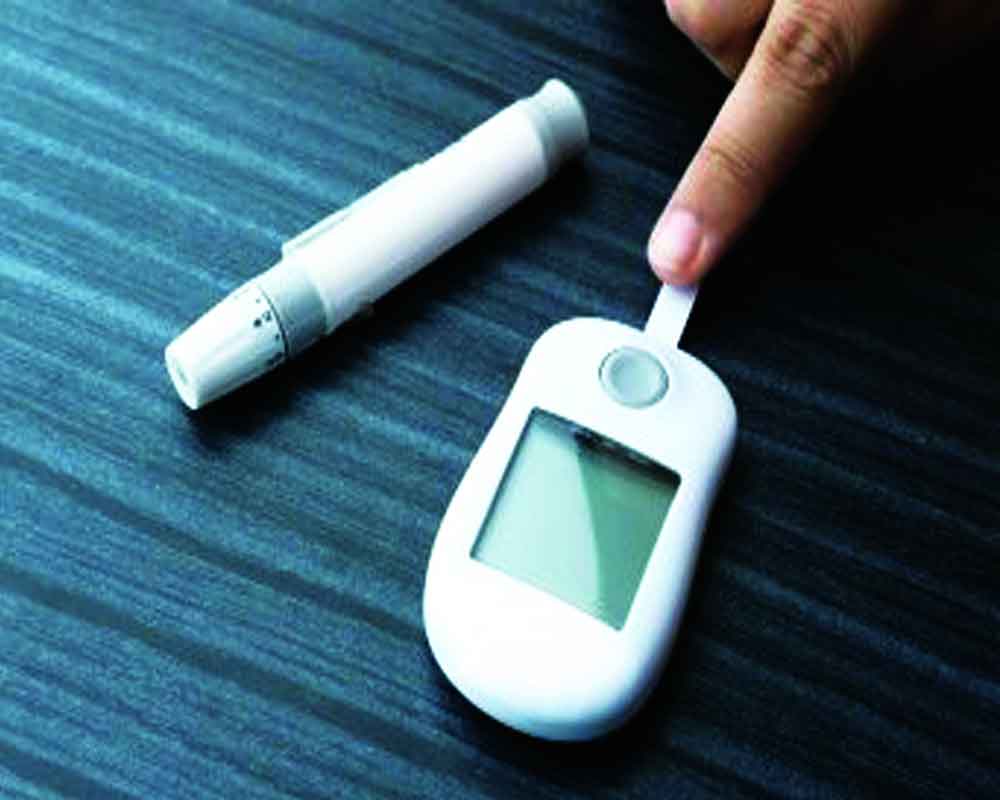According to the International Diabetes Federation Atlas 2015, 69.2 million Indians are Diabetic. DR ANURAG BANSAL tells you how to keep the disease in check
Diabetes is a metabolic disease which is caused due to high sugar in the blood. The hormone insulin transfers sugar from the blood to the cells which is stored and used as energy. With Diabetes, the body either doesn’t reproduce enough insulin or can’t effectively utilise the insulin to its optimal.
Untreated high blood sugar from Diabetes can damage your kidneys, eyes, nerves and other organs.
Symptoms: Diabetes symptoms are caused due to rising blood sugar:
- Increased hunger
- Increased thirst
- Weight loss
- Frequent urination
- Blurry vision
- Extreme fatigue
- Sores that doesn’t heal
Causes: Multiple causes are associated with different types of Diabetes.
Type I Diabetes: The causes of type 1 diabetes are still not very well known. For some reason, the immune system mistakenly attacks and destroys insulin-producing beta cells in the pancreas.Genes may play a role in some people.
Type II Diabetes: Type II Diabetes stems from a combination of genetics and lifestyle factors. Being overweight or obese increases your risk too. Carrying extra weightmakes the cells more resistant to the effects of insulin in your blood sugar.This condition runs in families. Family members share genes that make them more likely to get Type II Diabetes and to be overweight.
Diagnosis
Anyone who has symptoms of diabetes or is at risk for the disease are suggested to get themselves tested. Women are routinely tested for gestational diabetes during their second or third trimesters of pregnancy.
Doctors use the following blood tests to diagnose pre-diabetes and diabetes:
- The fasting plasma glucose (FPG) test measures your blood sugar after you’ve fasted for eight hours.
- The HbA1C test provides a snapshot of your blood sugar levels over the previous three months.
- HbA1c is a test which is generally offered to diabetic people to evaluate their average blood glucose levels over a period of two-three months. Although it has also been recognised as a diagnostic test of Diabetes mellitus but its prime importance is to see the compliance of the patient and long term control over glucose levels.
- Glycosylation is an enzymatic reaction in which glucose molecule attached non-covalently to the Hemoglobin molecule. Generally the percentage of glycosylated hemoglobin remains less than 5 per cent of total hemoglobin in normal population. In diabetic people, as the glucose level increases, percentage of glycosylated Hb rises in a linear fashion. Since the RBCs have a life span of around 120 days so HbA1c stays in the blood till old RBCs are replaced by new one. So HbA1c will give us an approximate idea of blood glucose levels maintained by patient in past few months.
- Unlike blood glucose levels which keep on fluctuating all the day, HbA1c does not get affected by the last meal and therefore serves a good marker for long term glucose control.
- To diagnose gestational diabetes, your doctor will test your blood sugar levels between the 24th and 28th weeks of your pregnancy.
- During the glucose challenge test, your blood sugar is checked an hour after you drink a sugary liquid.
- During the three-hour glucose tolerance test, the blood sugar is being checked after an overnight fasting and breaking the fast with consumption of a sugary liquid.
The earlier you get diagnosed with diabetes, the sooner you can start treatment. Find out whether you should get tested, and get more information on tests your doctor might perform.


























